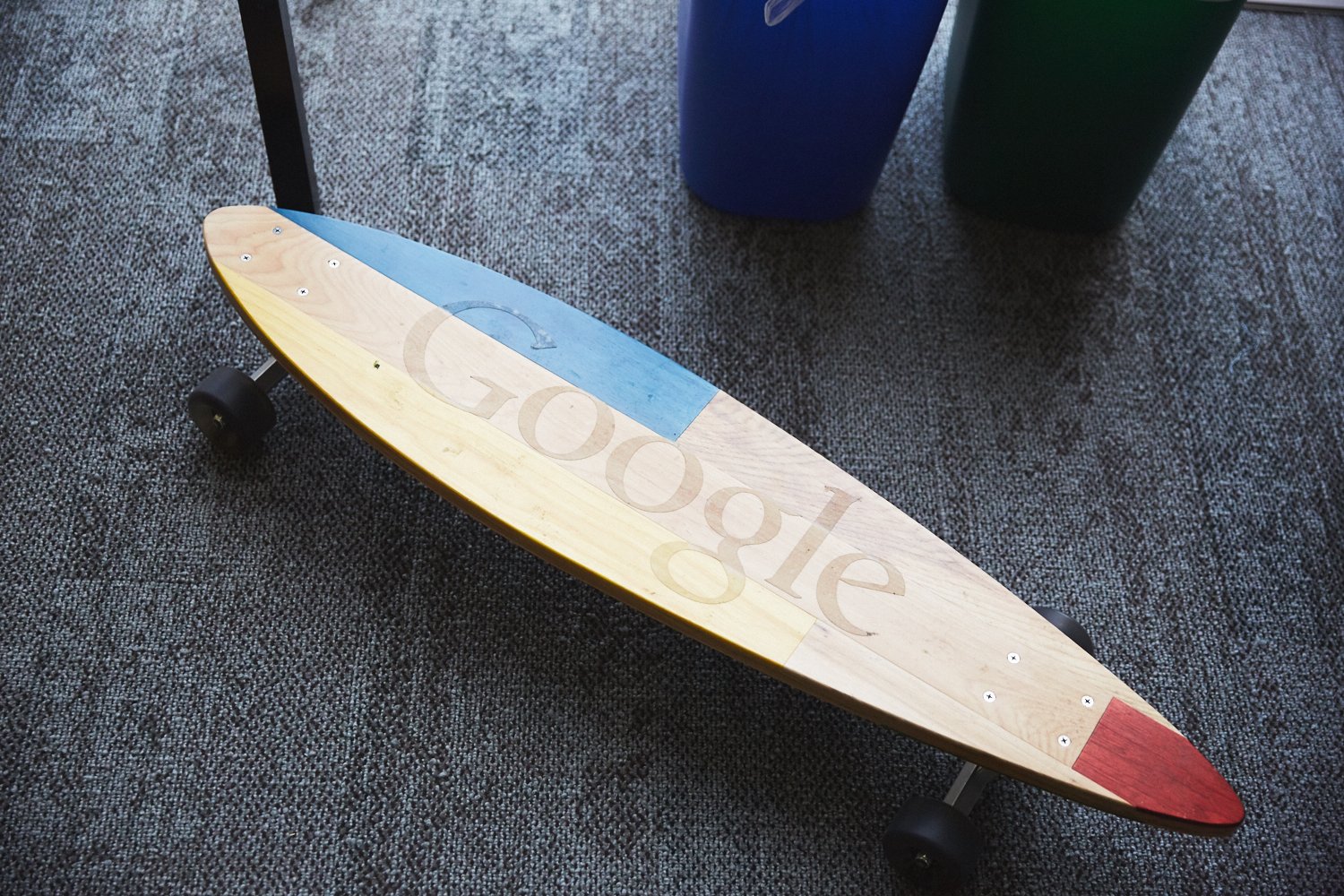Normally, I like to keep The Weather Station Experts as focused on its core topic as possible. The events of the last six months have made it difficult, however. As you may or may not have heard, Google released something called the “Helpful Content Update” in September of last year, with the stated goal of cleaning up search results from spam and clickbait.
However, the update did anything but. Overwhelmingly, small sites like The Weather Station Experts, complete with evidence that we reviewed the product, suddenly saw traffic from the world’s top search engine collapse almost overnight, in some cases by more than 90%. Sites like Reddit and other large publishers took their place, often not answering the questions folks were searching for, with clickbait and spam still a problem.
Google’s silence here is deafening. Even worse, developers can’t explain why the HCU destroyed small sites while barely touching the bigger ones.
This has had a disastrous effect on small publishers. Year over year, we’ve experienced about a 75% decline in revenue (partially due to the collapse in the ad industry, but a majority of that loss is in non-ad revenues). I’ve heard and read from other publishers of similar or even worse results. While losing three-quarters of your revenue in a matter of months is a business killer for any company, it’s especially damaging to the “mom-and-pop” outlets that often are behind some of the better review sites on the web.
When I tell you we had no warning, we really didn’t. We assumed the HCU would fix the obvious abuse among big publishers. But given Google’s recent moves, I should have guessed this is what was going to happen. Google always takes the road to maximum profits, regardless of its effects on search. And no, Danny Goodwin, this isn’t 2003. Not even close.
Google’s silence here is deafening. Even worse, developers can’t explain why the HCU destroyed small sites while barely touching the bigger ones. It’s comical how so many look like deer in headlights when they’re asked about it. But the answer couldn’t be any more easier to spot. The reason why these sites are still hanging on with fake reviews is simple: Google made it easy for them so it wouldn’t affect ad revenues.
I was part of the problem once
I worked for Digital Trends from 2015 to 2020, one of the outlets often criticized for spamming results with fake review lists. I can tell you that these companies knew what they were doing. Shortly after I arrived there the SEO team discovered, well before anybody else, that Google would reward DT with top-tier rankings as long as the post was marginally tech-related.
It was a literal gold mine.
I will argue a lot of this had to do with the outstanding journalism produced by DT writers over the years. We also had a laser-sharp focus on tech, including reviews. But that didn’t last long once it was clear review roundups were a much bigger moneymaker, and faster to write. Sure, actual reviews were still written (and Caleb Denison remains the go-to guy for TV reviews), but not as often (In fairness to DT, I have no idea of their SEO strategy post-2020, though).
Over the next couple of years, that was DTs primary focus. I can tell you one of the reasons that Digital Trends went from basically a nobody to a tech news behemoth were these roundups. But it also changed the editorial focus from original content to made-for-search. Other outlets like Forbes discovered the same not too long after, and the rest is history.
But other smaller sites also found this loophole and were able to commandeer search topics with fairly little work. I also have experience there too.
Around the same time as my stint at DT, I also started work for a competing weather station review site. For whatever reason (which I still cannot tell you), Google loved my weather station content. It didn’t matter where it was posted, but it would shoot to the top of SERPs. At one point early in TWSE history, if you searched for a weather station, say the Ambient Weather WS-2902, the top results that appeared were all written by me, either on this site or from the four other publications I’ve written weather station content for.
Maybe it was the fact that I was one of the few people on the web ACTUALLY REVIEWING weather stations, and not just regurgitating Amazon reviews and manufacturer websites, like just about every other weather station review site on the web right now. Who knows.
I don’t fault these people for seeking me out to write weather station reviews — I would have done it too! And it’s also the reason why I struck out on my own: too many people were making money on my hard work. That’s the whole reason this site exists: I control the editorial output, and ensure what my name is on is something I approve of. I wasn’t planning on Google continuing to reward these sites for spamming the net.
But what’s maddening about this is Google had an opportunity a half-decade ago to fix this.
Google had this fixed and failed to follow through
While I can not recall what the update was, there was one shortly before the pandemic aimed at tamping down the content spamming that was commonplace across search results, and it had an immediate effect on DT. The site fell from SERPs so dramatically that it put the entire organization at risk of collapse. That weather station review site? They also did a lot of “fake” lists.. and they got smacked just as hard.
Google has taken its foot off the gas since then. Sites that got smacked from that update recovered completely, and since then have only grown. Those fake review roundups (which often include next to no products reviewed by the publication) were back in force. Google had figured out a way to stop this, but either changed course or gave up.
I think I know why.
DT, like every other free site on the net, depends on ad revenue. So, Google hurts itself by penalizing large sites, because it reduces ad revenues. While Google is fully aware these sites don’t review the product, the potential revenue loss is too great to do something. It makes sense: changes that affect smaller publishers won’t affect Google’s bottom line.
It is not a coincidence that Google withheld news that its core update was completed until after its earnings call.
As we’ve learned from Google’s antitrust trial, revenues are a bigger driver of how Google operates versus search quality. Changes to search aren’t necessarily always aimed at improving search results and sometimes are solely intended to increase revenue. While we can’t fault Google for trying to turn a profit, it is coming at the expense of small publishers.
This makes search results hard to trust because those small publishers are typically the ones where you’re getting someone’s unedited opinion. I can’t tell you how many times I had a review edited because I was “too harsh.”
I’ve covered Google as a tech reporter for nearly my entire career (20 years), and have watched the company transform from a superior alternative to the early and easily duped search engines of the 1990s and 2000s into a monopoly with near-total control over search and ads, far exceeding the power that Microsoft had with Windows, with the ability to pick winners and losers on the web.
And we let it happen.
Google values profits over search quality
Google has created two sets of rules, one for the major publishers which are the backbone of its ad dominance, and others with much less power to do anything but hope for some intervention. Google has no reason to change course on its own. These big publishers are still churning out these same fake reviews, with no fear of penalty.
Even this “reputation abuse” policy recently introduced is filled with loopholes which any big publisher can avoid penalty. It still doesn’t penalize large sites for using their site reputation to take over topics in search results that are not related at all to the main topic of the site. I’m not saying we should “stick to our lanes,” but I shouldn’t expect my air purifier articles to do as well as my weather station articles (sorry HouseFresh). It’s a start, but it doesn’t fix the core problem.
If you’re one of the big guys, just write it, Google will give you top ranking regardless.
Don’t let the PR speak fool you: if Google wanted to fix their search results, they could today. They already have before. What other reason does Google have to keep these fake reviews and Reddit posts at the top of search results? Money.
So where do we go from here? That’s the question I and thousands of other small publishers are asking. There’s no clear guidance from Google, and we’ve been sacrificed at the altar of profits. Now John Wu is telling me and others to “change our business.” Google, you are essentially deciding for us all what’s helpful, and then have the audacity to claim we’re running our businesses wrong? Real reviews aren’t good enough? Not all of us have the money to do videos every day, or the staff. But I can’t even tell you if that’s what’s wrong with us, because Google doesn’t know.
It’s wrong, monopolistic, and evil. If you had no idea how this would scramble results, or can explain what it’s looking for, why was it released in the first place? There is no other explanation other than this. It didn’t make Google search results better and arguably made them worse.
The good news? Our traffic from Bing and other alternatives has dramatically increased. But that’s 9% of web searches. That’s not a stable business.
It’s not fair and deserves regulatory scrutiny. It’s time to treat Google like we treated Microsoft in the 1990s. And with so much of the web now controlled by Google, their power is far greater. But given the dysfunction in Washington, I’m not holding my breath.
Editor’s note: This blog post represents the author’s personal opinion, and is not attributable to The Weather Station Experts or The Weather Whys Company.


